In my last update, I recounted a trip to an eye hospital with one of our students. This was an eye-opening experience (yes, pun intended) in itself, but there was an important part to the morning that I didn’t mention. A while back, I was fortunate to spend some time speaking with Aryaketu’s father, Triratna Order Member Saccadhamma, and I humbly attempted to write his story, from a childhood of poverty to spiritual discovery, through ordination and the eventual building of his house, which I am currently staying in and that also accommodates the community of young women at Aryaloka, as well as their teaching facilities. There are so many people I have met over the last couple of months whose daily lives I find inspiring, whose background stories I feel sure would greatly benefit those from the West to read. Of course, it is not always practical to find the time required to really listen to their histories from start to finish and so I have resolved to simply share as many as I can but in no particular order. It’s not inappropriate though, having started with the bricks and mortar, both physically and spiritually, to move now to someone that from my perspective really embodies the heart of all it is to be domestic in India.
| That’s not to trivialise her other roles though and I was fortunate to realise the opportunity afforded us by the optician’s waiting room to begin hearing and taking eager notes on Sheetal’s Story. Sheetal is Aryaketu’s wife and mother to 15 year old Ojas. She admirably fulfils all the functions expected of her in this role, preparing three meals a day for both the men in her life as well as us, the visiting teaching team, often cleaning up after us as well as undertaking the housework required to keep her home functioning. She supports Aryaketu unquestioningly in his work for the order, even when this brings him home late or takes him right out of the country for many weeks a year. She gently, yet persistently encourages Ojas to make the most of his studies, patiently bringing him back on track when really, like many other 15 year old boys the world over, he’d rather be playing Assassin’s Creed. Her life is by no means limited to the domesticity ascribed to her by Indian society; however. She is also fully committed to Dhamma herself and attends weekly chapter meetings on Tuesdays with study classes on Saturdays in her own progression towards ordination into the movement. This process often takes far longer for women than for men in India as it is much harder for them to secure time away from domestic duties to study, attend retreats and deepen their practice sufficiently. Still undeterred, she carries on. If this doesn’t already sound like a full schedule, Sheetal is also Centre Manager for the Bhilgaon Campus, responsible for not just teaching important parts of the critical MSCIT (Maharashtra State Certificate in Information Technology; a government recognised qualification that is a basic requirement for any individual wishing to obtain good employment in a wide range of sectors beyond physical labouring) but also for the pastoral care of the young women, their spiritual development and harmony in their community, as well as a myriad of administration tasks that come with the job such as managing course fees from the non-residential students and making sure the registrations with the exams office are regularly maintained. |
Sheetal manages to successfully fill all these roles whilst she works with the long term debilitating disease that is osteoporosis. She was diagnosed with this when she was 35, just over a decade ago, and it frequently causes her a great deal of pain. Having had a similar condition myself in my teens, (juvenile rheumatoid arthritis, thankfully not an active disease any longer) I can almost feel that sharp yet grinding ache in the heart of the joint when I watch her move, often awkwardly, around the house; bringing in lunch, or sweeping the floor after sorting vegetables from the weekly trip to the market. ‘I never drank milk!’ she tells me, ‘not even when I was pregnant. I do not like it. But for the calcium…’ she now drinks a glass every evening, with flavoured protein powder to make it more palatable, and an egg, for breakfast. This may help slow down any further deterioration but it cannot reverse the damage already caused. The homeopathic and Ayurvedic remedies she is prescribed may or may not, do much to help. ‘I used to worry’, she confides one evening as a student demonstrates village healthcare skills by massaging Sheetal’s sore legs and swollen feet with oils warmed over hot coals before deftly wrapping them with castor leaves tied in place with cotton thread until morning. ‘How will I manage when I am old? But this is not helpful. I stay mindful of the present moment. When I cannot sleep with pain I get up and meditate. This is very helpful to me.’
| Sheetal was born in Nagpur on the 2nd of September 1975, the first daughter of three, into a very full house. There were four uncles, three aunties and three of her grandparents as well as her mum and dad, all living together when she arrived into the family. The house was noisy but not just because there were so many people in it; situated on the Kamptee Road, one of the main routes to and from the city centre, there was constant traffic rumbling past and even more, she tells me, during her childhood than there is now. The Kamptee Road is the ‘main drag’ from Aryaloka Bhilgaon to Aryaloka Indora, where the other half of our teaching takes place and a trip up it is a challenging experience full of dust, fumes, noise, trucks, mopeds, blaring horns, auto rickshaws, coaches, cows, people, bicycles, vans, you get the idea. One needs to allow a certain amount of energy just for the journey before teaching has even begun and so it is hard to imagine living right next to it when it was even busier. Thankfully, it was only the backdrop for the first three years of her life and when her father was successful in applying for a transfer in his government job as auditor for the railway, she moved with her parents and her 18 month old sister to a rented house in Jabalpur, Madhya Pradesh. These were happy times and she describes this part of her childhood with a buoyant vigour as though somewhere a curtain has opened to let a ray of morning sun play across her face. She shines as she speaks of it, despite the gloom of the eye hospital waiting room. After her second sister was born, her mother’s mum came to help the family and she enjoyed the walks to school, sometimes with her grandmother, sometimes with her dad. When she was five, her father was successful in applying for a government house and this looked out onto a big playground, which was the scene of many a joyful evening, playing with friends after school. They were happy and healthy here, very well looked after by a mother who took the wellbeing of her family very seriously. She left nothing to chance in meeting their needs, researching nutrition to ensure they were well fed, attending school for regular updates, helping with homework. Yet there is no sense that this was in anyway strictly enforced and it seems she was able to balance this with equanimity, taking care also to provide the love, freedom and emotional strength her family needed to flourish. Sheetal describes her mother with so much love and admiration that she really does sound like a model parent and it is perhaps no surprise to learn that when Sheetal’s aunt and uncle ran in to marital strife and began quarrelling, two of her cousins moved in! Preferring the warm, loving environment to their own home, this irritated her mother’s sister intensely. |
All good things must come to an end; however and when Sheetal was 13, the family moved, with no shortage of regret, back to Nagpur. Her paternal grandfather owned several properties, which he rented out and they bought one of these from him. Living in their own home did not bring the joy that might have been expected; however, and the family struggled with inconsiderate neighbours in the busy city centre, a far cry from their experience in the suburban community of Jabalpur. Despite this change of circumstances, her mother continued to form the backbone of positivity the family needed to get by. In the Indian education system, it is common for students to attend classes for extra tuition and begin preparing for exams when they reach 10th Standard. Sheetal dutifully attended her first class but found it crowded and unpalatable so told her mother she did not want to go again; she would study hard at home instead. In the interests of seeing their progeny succeed, many parents would have taken none of this wayward behaviour but Sheetal’s mum simply agreed by saying ‘whatever makes you happy!’ This support is remarkable not just to demonstrate the significant amount of trust and faith in daughter by mother but also in the face of surprised criticism from family and friends. Such critics resigned Sheetal to failure; her school in Madhya Pradesh had been a Hindi Medium school, but here classes were in Marathi.
| Such a significant disadvantage combined with a lack of tuition would surely result in disaster, they were adamant. But they underestimated Sheetal. She studied hard, just as she said she would, and this seed of determination fertilised by the love and support of a remarkable mum, blossomed in to Passes with Distinction for Marathi, Science and Social Science. This may have surprised and impressed her detractors, but success following hours of home study was hardly a new experience for Sheetal; her mum had spent the summer holiday of 1984 coaching her to a good standard of English before she even began studying it formally at the age of eight. Academic success, just like the formulation of an adequate diet, was never taken for granted or left to the chance of received wisdom, she had been raised to beat her own path to her goals. After her exam success, she took admission to the famous local Sindhu Mahavidyalaya College for 11th and 12th Standard (sixth form or college equivalent). This fame was mixed; the college had a reputation for excellent teaching but also for troublesome and disorderly pupils, especially among the male cohort. This couldn’t have been further from Sheetal’s own temperament but she resolved to put her education ahead of her own sense of personal security; a significant risk following her provincial girl’s school background. Of course, mum was as supportive as ever, coming along to see her off at the gate on her first day. Concerned to avoid unwanted and inappropriate attention from the opposite sex, Sheetal went out of her way to be as unattractive as possible and deliberately dressed in unflattering clothes. ‘I oiled my hair!’ she tells me, demonstrating by dragging her hands down the sides of her head, flattening her now henna-enhanced tresses. |
‘I only wanted to study!’ She knew marriage was one day unavoidable but was determined to make the most of her education while she could. Mindful of her status as eldest child, she was also keen to avoid any conflict or bad impressions. ‘I thought; my father is the only man in the house, what if a boy comes to fight him!? I was afraid of one sided love.’ Such a sense of personal responsibility at this young age illustrates not only a commitment to her family but also a sharp eye on a longer term plan. She knew a good education would secure her access to a higher social standard of suitors further down the line, as well as delaying the inevitable wedding. ‘I wanted to become a graduate.’ Of course, she passed 12th Class and took a BSC at the same college, finishing with a 2:1 equivalent in Microbiology, Chemistry and Botany, taking then a computer course for five months after graduation. I can’t help wondering, when I try and add up how many chapattis those hands roll out each week, if they’d not have been put to better use in a laboratory than a kitchen, but this is a Western woman’s perspective and it is patently clear that Sheetal is very genuinely happy with her circumstances as they have unfolded.
| Despite her academic success, these years were not easy for Sheetal’s family. Having moved closer again to the conflicted home of her aunt when returning to Nagpur, the impact of the rift that had driven her cousins to live with them in the first place became ever more apparent. Sheetal’s aunt came to their home to argue with her sister several times and this affected the whole family with unpleasant rumours spreading around a very difficult situation. Her mum’s health began to suffer and she became very ill, experiencing chest pains and other symptoms of anxiety in the wake of constant harassment. Sheetal’s sister, equally academic, was studying a pharmaceutical course and contacted a doctor she knew for advice. With this treatment and a lot reciprocal love and support from the immediate family, her mum rallied physically but still she was suffering with mental illness. One family member who saw through much of the gossip and regularly visited to support the family was Sheetal’s maternal grandfather. He lived in an area of Nagpur called Mahendra Nagur and suggested his daughter try attending meditation classes with him on Thursdays at a centre just a one minute walk from his home. It would help, he assured her and asked her several times to come with him, but Sheetal’s mum refused, saying that she had done nothing wrong and it was her spiteful brothers and sisters who should go and learn to live a better life! One night, which was coincidentally a Thursday, Sheetal’s parents were invited to her father’s house for dinner. They were asked to arrive at half past five; too early for a meal but with plenty of time to chat and to go for an evening stroll around the neighbourhood before eating. Lo and behold, their local stroll ‘just happened’ to take them into a local Triratna centre. Despite her misgivings, when she saw the shrine in the open space, the flowers and the Buddha rupa, she felt immediately impressed and enjoyed the meditation and puja that occurred that night. From that day on, says Sheetal, her mother never stopped her Dhamma work. This was in the March of 1998, Sheetal’s final BSc year, and in April she finished her exams. With her time now freed from study, she went along to a Dhamma class with her mum. She was unimpressed when she walked in and saw a young man in a kesa on the stage. ‘I thought, this is the wrong man! How can he teach? He’s too young! I thought, young people go to the cinema and enjoy themselves, they know nothing about spirituality!’ This man; however, gave a talk that impressed her so much with relevant examples that seemed to come from her own life and experiences that she felt he knew her already even before her mum introduced them, post talk. |
If you’ve already guessed the Buddha-meets-Bollywood plot twist in this delightful tale, I am pleased to confirm that his name was, indeed, Aryaketu. Still, Indian culture and Buddhist reserve do not lend themselves to heady romance off screen and they did not converse again until Sheetal went to volunteer at the Triratna office on the local Dr Ambedkar Road, helping to produce a quarterly magazine published there. Still they were respectfully distant in their communication, though Sheetal remarks that she never normally talked to boys for fear they’d fall in love with her and is not entirely sure why she talked to this one! Inspired by her own experiences and by the example of her mum (now an ordained member herself), She continued her involvement in the movement, volunteering as a maths teacher at one of the local charitable projects, the Bahujan Girls’ Hostel. She attended Dhamma classes regularly and became well known amongst the Triratna Sangha in Nagpur.
| One day, after teaching at the hostel, she came home to an animated reception from her sister who told her that a very exciting thing had happened and that she should try and guess who had visited! Jija, Aryaketu’s mother and also a Dhamma Mitra, had come for chai, along with another mutual friend from the order. It is with some amusement that Sheetal continues the clearly oft-recounted tale; apparently Jija had actually left the room to use the bathroom when the family friend formally suggested that Sheetal and Aryaketu made a good match for marriage! Sheetal was already well known to Aryaketu’s family; she’d attended Dhamma classes run by his father, dancing classes and retreats with his sister. She was pretty, educated to a good level and dedicated to Triratna. There weren’t many more boxes left to tick. Aryaketu was certainly happy for them to suggest the union, though was apparently unconvinced that such a standard of young woman would be interested in a man who did not have a government job or family house. Sheetal’s wider family were certainly not impressed, but when she heard the news, Sheetal was every bit as delighted as her mum and dad. She had always dreaded the day when she believed she would inevitably have no choice but to marry a man with money and status; not something she wanted, fearing that such a husband would be free with his money, his affections and possibly, his fists. Having been brought up by a family who encouraged her to have her own opinions, stand on her own feet and make her own way in life, the thought of winding up in a housewife’s role with little else to occupy her but a demanding husband, filled her with fear. She felt she could trust Aryaketu however; he would not be a philanderer or a wife beater with a commitment to the Dhamma as strong as demonstrated in his talks. As someone so well known in the order, he was unlikely to have any hidden motives or distressing personal secrets. |
After all that worry, Sheetal felt a solution to the problem of marriage that would allow her to pursue the simple life free from money or pressures of status had indeed presented itself and they were married on October 31st, 1999. As newlyweds, Aryaketu was working at Nagaloka, but he was soon ready to move on to new challenges of his own and wanted to provide opportunities for young people. He started the Aryaloka institute in 2000, so it has really always been a part of married life for Sheetal. She worked as a private tutor to bring in some money for the first three years before Ojas was born in April 2002, but then began taking responsibility for the Aryaloka accounts. It was a role that needed filling and it made sense for her to take work that made it straightforward for her to carry out the household management too.
| In 2012, the Bhilgaon branch opened and she then became centre coordinator and teacher. Sheetal seems surprised as her narrative catches up with her present life, that she has so much to share. ‘I thought I had no story!’ she tells me again, having dismissed my request to write it in the first instance by saying there was nothing to say. She never imagined, she tells me, that she would live as she does now, in such a big house, with a car, a television, all the symptoms of wealth. Of all three sisters, she was always the one least interested in professional or material gains, in possessions or status, and yet, she tells me, she believes herself to be the happiest of all of them. Her sisters are not unhappy, she explains further, and have good jobs, good husbands, houses, in many respects the lives they always wanted; but they are not as happy as her. She is pleased, she mentions too, to know her parents do not have to worry about her. ‘Oh, Annabeth, I am really very happy!’ she announces, with an air of grateful surprise. She seems mildly taken aback too when I reply ‘Good! You deserve to be!’ But I do not believe for a moment that it is because of the house and the car, the status of being married to an order member or being the coordinator of a school that she is happy, nor do I think does she. Sheetal is an eminently kind woman, a thoughtful and sensitive person who takes the happiness of those around her seriously. She works hard, unceasingly in fact, to maintain this happiness and wellbeing, just as she describes of her own mother. In the short time I’ve known her, I have come to professionally and spiritually respect and personally very much like her. She is now, and I hope will always be even when the miles separate us, a trusted friend. Her faith in her practice of Buddhism goes far beyond the flowery rhetoric of devotional text, or acts of kindness for the sake of fulfilling a precept. |
Compassion and loving kindness shine through from the core of her being and her fierce dedication to professional and domestic responsibilities is balanced by a calm temperament, a consistent, reliable, freindly stoicism which is itself underpinned by occasional flashes of bubbling joy and moments of unconcealed delight. If I gain no more from my time in India than the opportunity to count Sheetal among most treasured friends, however far flung she may one day be, then it will have been no waste in my time and resources. I may continue to relish her company during the remainder of my stay but her influence, I feel sure, will outlast our weeks together and her steady reliability, her lightness, her determination and her selfless nature shall continue to inspire me for many years to come.
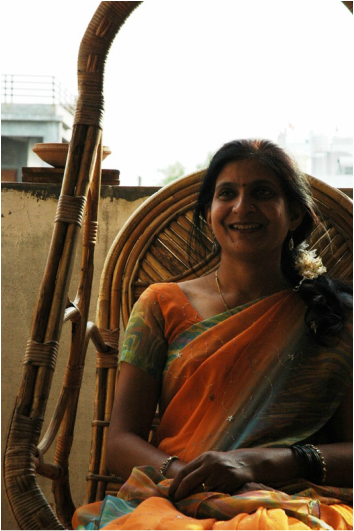
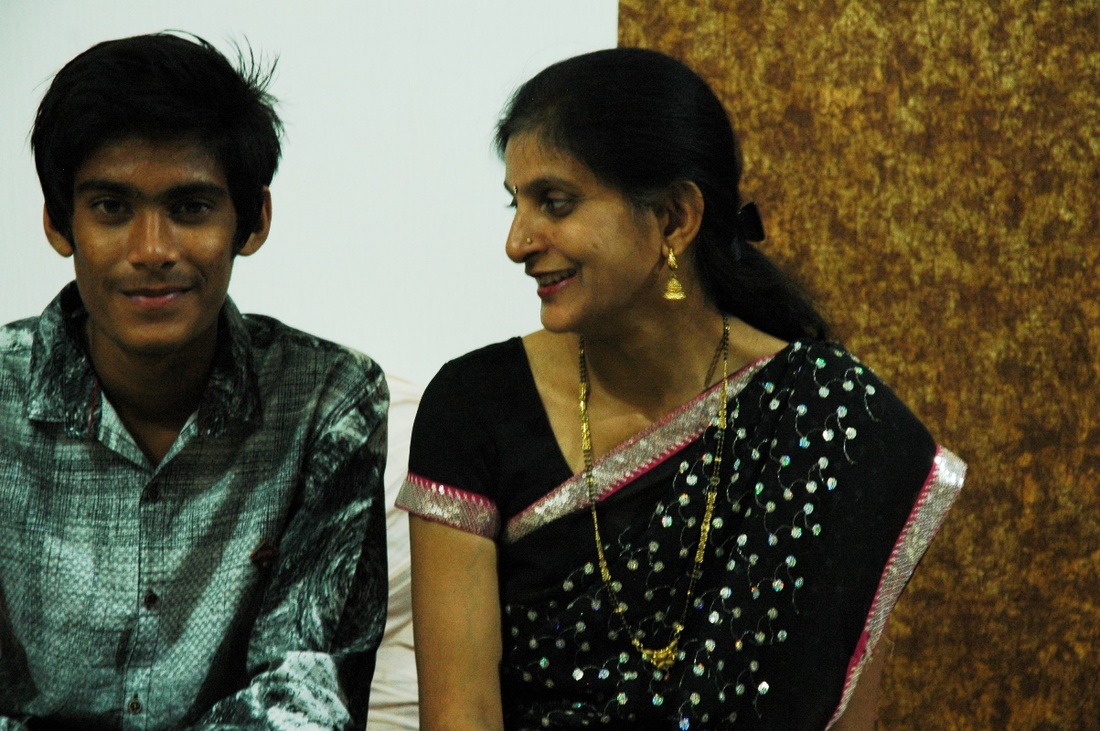
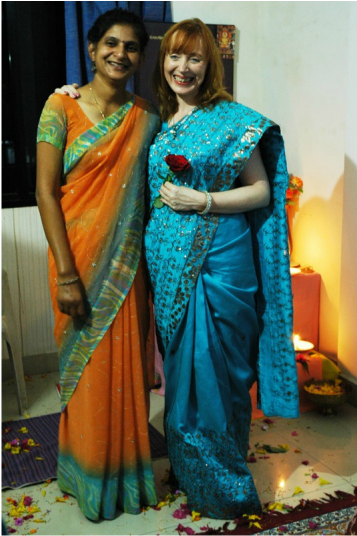
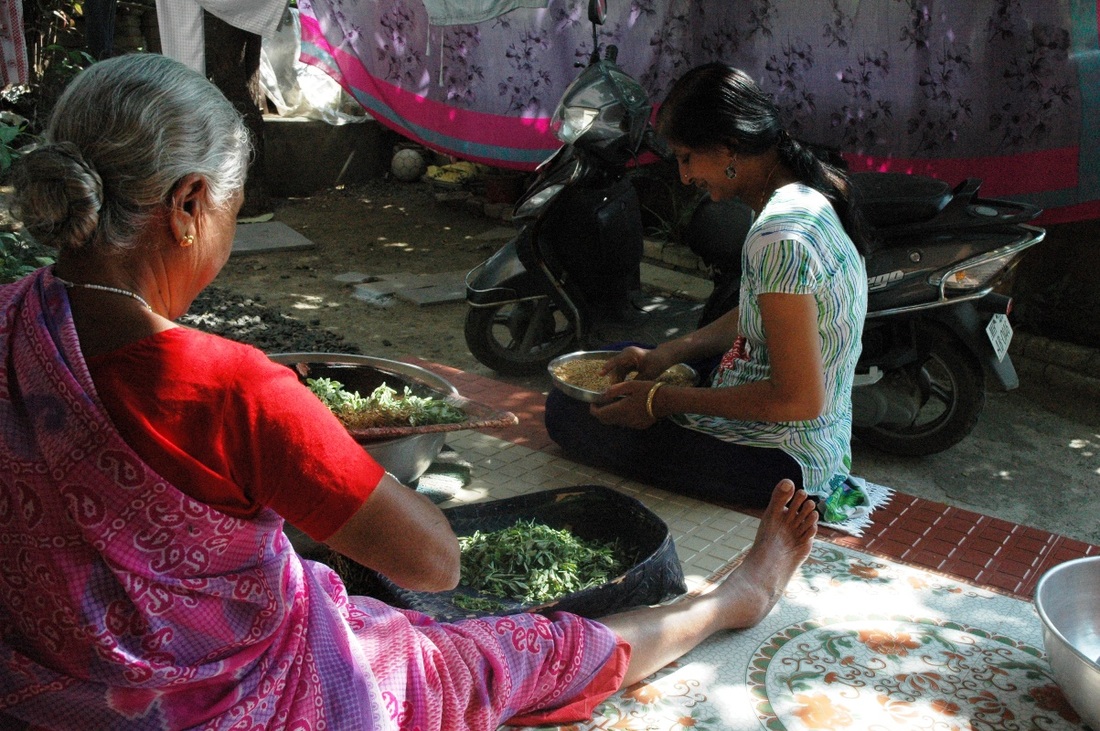
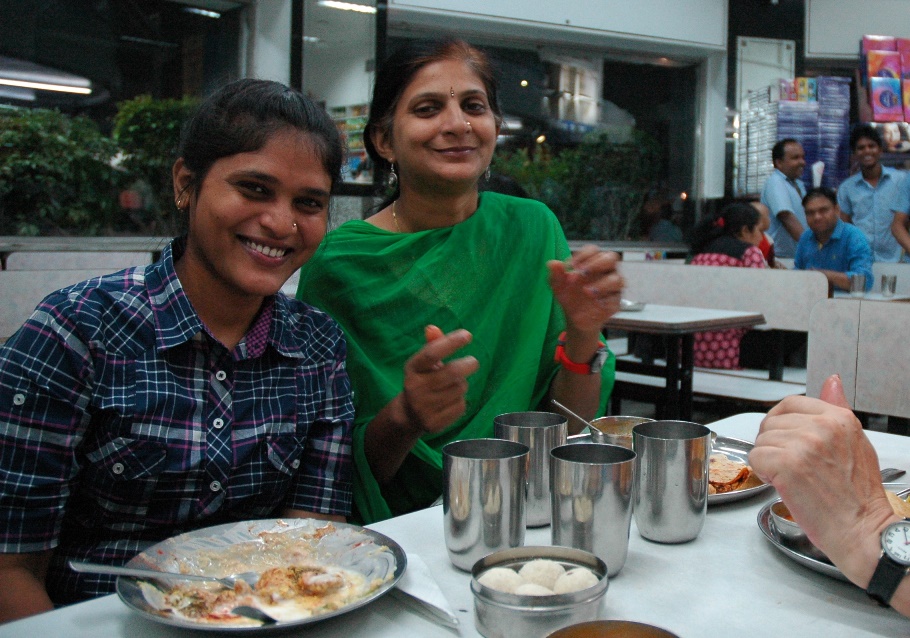
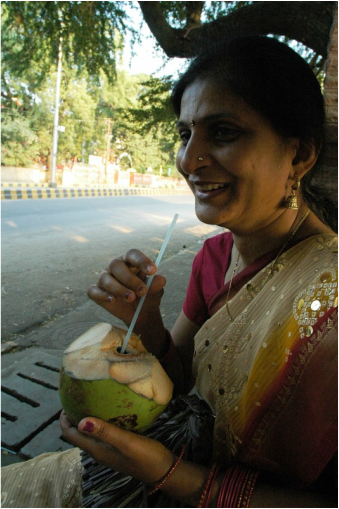
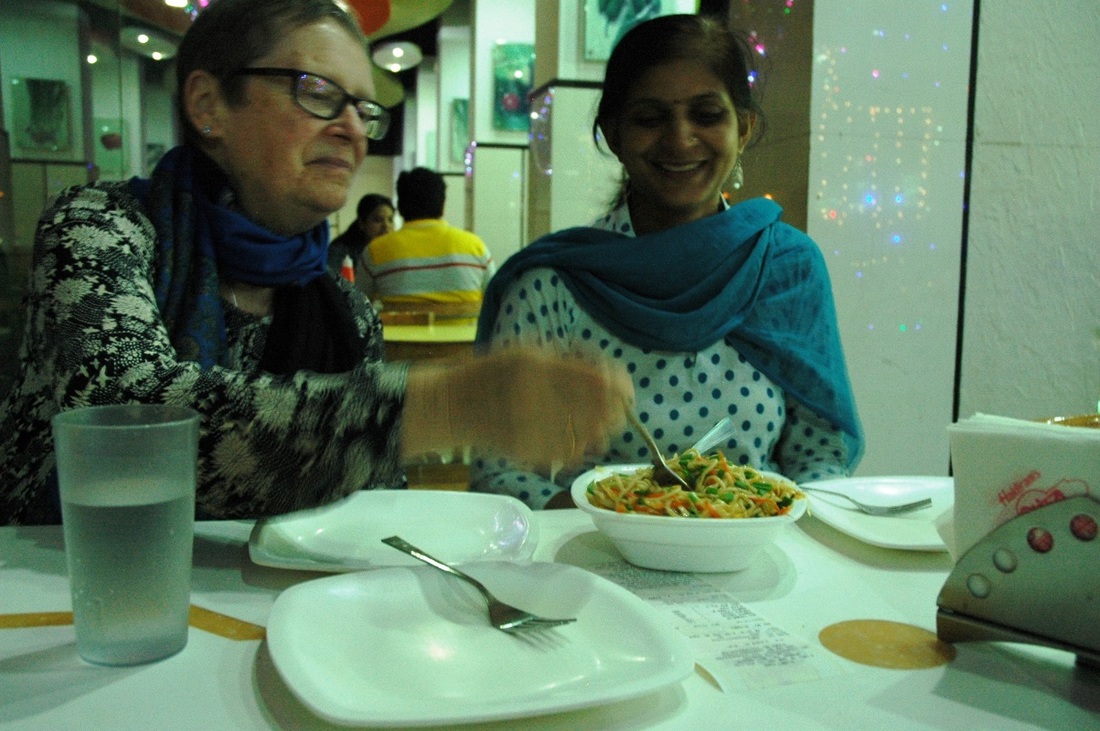
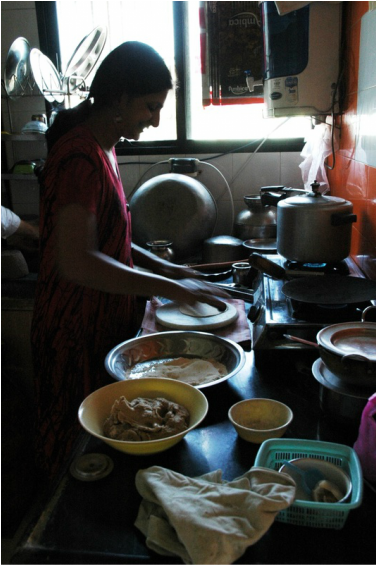
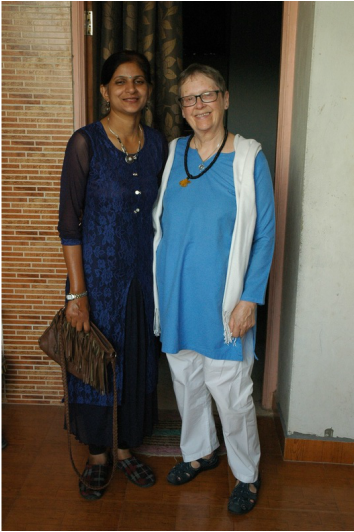
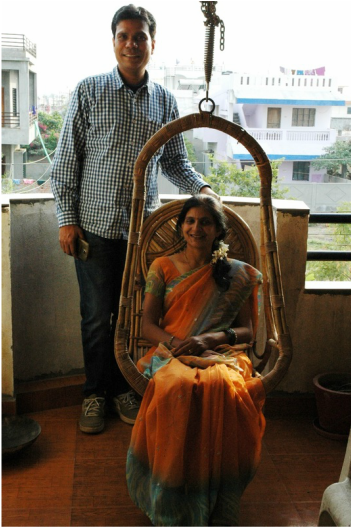
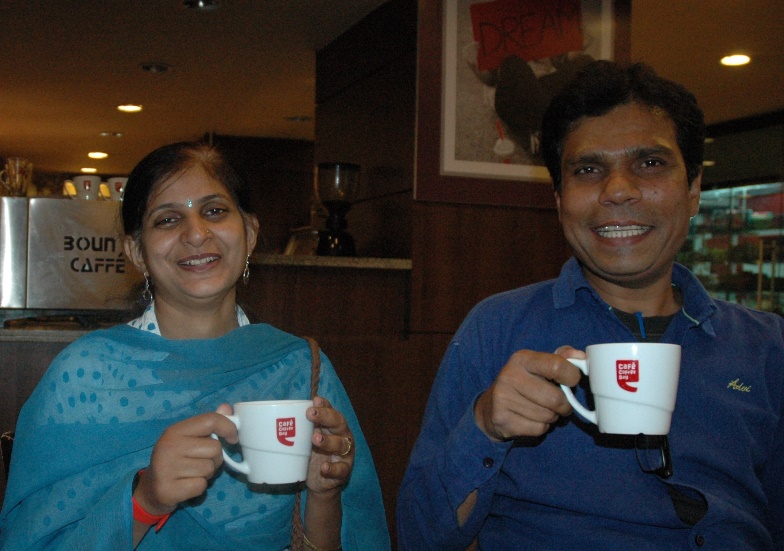
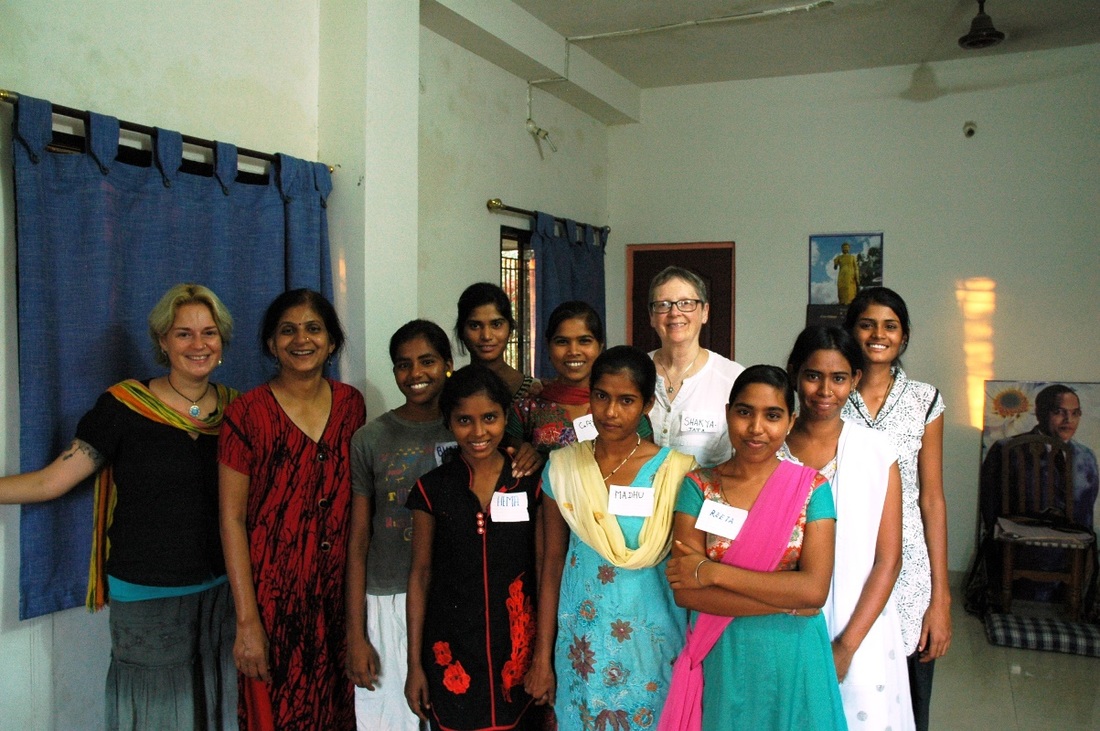
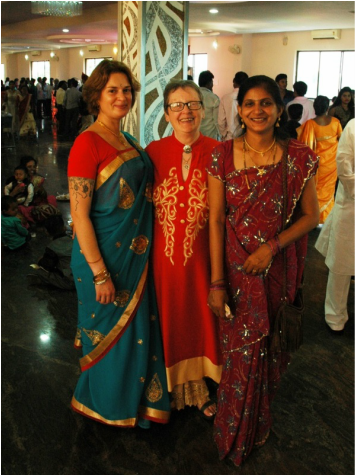

 RSS Feed
RSS Feed
